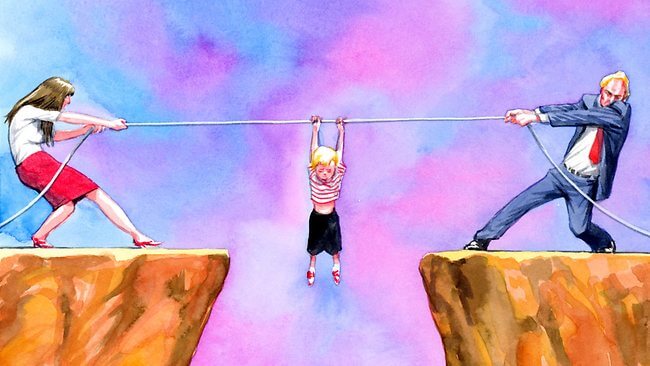The separation of parents, especially during one’s own childhood, is often times a traumatic experience that carries long term damage. While a child may not realize it, underlying harmful effects can form and hinder their lives down the line. The one thing any good parent wants for their children, is their happiness. As such, it is imperative that a deeper understanding of the effects of a divorce can have on kids be put forth.

How Children are affected
Children caught in the crossfire of divorce undergo many changes, many of which can be harmful to their well-being. This can occur in a myriad of ways:
- It interferes with their ability to interact with others: Living through a divorce at a young age often results in a child internalizing their parents’ conflict and asserting it outwards on others. This can often be seen at a school setting. For instance, boys dealing with divorces often exert their frustrations upon their peers in the form of bullying. They tend to have increased aggression as a result of their pain. For girls, they tend to be more withdrawn from social settings. All of these symptoms make for an individual unfit for the rest of the world. Negative effects of divorce on children are one of the reasons why wise parents keep divorce as the last resort.
- Children tend to face psychological hardships. Some kids from Separation Anxiety Disorder or SAD, in which they become depressed, fearful of losing loved ones, heavily attached to others, and form self destructive behaviors. In extreme cases, this can result in children inflicting physical harm onto themselves such as cutting or in other cases, sleep deprivation. Long term effects can also weaken an individual’s own will to be independent and self-sufficient.
- These tough circumstances also lend themselves to creating other problems. Having such psychological hardships often results in decreased performance in academics and worsening of quality of life for kids. The latter can also result from financial troubles, as each parent must split their income and consequently, receive less.
- Children typically play the “blame game”. This is a behavior in which either children do not take responsibility for their own actions or they place blame squarely on themselves. For example, going through a divorce, children believe it to be that all negative occurrences are a result of someone else. In another instance, it could mean they feel they are the reason for the separation of their parents and that this means they are largely at fault for other bad scenarios
- A divorce can still have lingering pain in the children of the parents, even into adulthood. The sense of betrayal of a family member is never quite put at rest, and in some cases increases with age.
This is, of course, not to say that parents should never get divorced. Marital problems are always a reality in families. Some problems have a peaceful resolution, with families becoming stronger as a result. However, others are much worse off. Thus, a separation between partners can be an appropriate course of action, to avoid further pain. As such, the parents must be responsible in ensuring that they mitigate as much damage done to their children as possible.
What can be done to help
- Parents should avoid making sudden changes in their children’s lives. Abrupt changes will often times make the process of adjusting to the divorce much worse. This may include not having one parent immediately moving out of the house or changing the amount of time each parent sees a child.
- Open and clear communication between parent and child is a must. Parents should be honest with their children, as lying or “softening the blow” will only make things worse. For instance, a child learning of the true nature of all these sudden changes will more than likely hold resentment towards his/her parents for withholding the truth.
- Parents should also make efforts to identify and treat any mental concerns with their children. As mentioned previously, children during the process of a divorce may exhibit troubling signs of mental illnesses or psychological baggage. As such, parents would do well to notice these symptoms and seek professional help if needed. Psychological therapy, counseling, or even medication for children can all be ways to help them get past this burdensome process.
A divorce is a tremendous challenge to overcome and affects the entire family, both directly and indirectly. Because of this, it is imperative that parents are fully aware of not only their own actions but also what the impact these actions can have on those they love, the children. With foresight and encouragement, a divorce can be a temporary encumbrance. Given enough time, this may even result in a new and improved life for all involved. With any traumatic experience, it does not have to define the individual. A child’s happiness can be rediscovered after overcoming such adversity.
